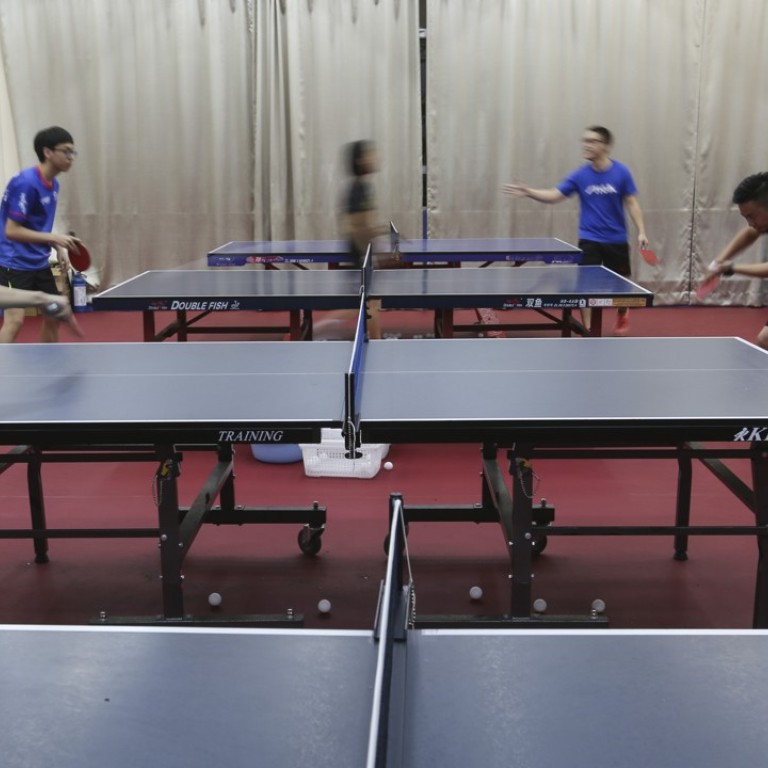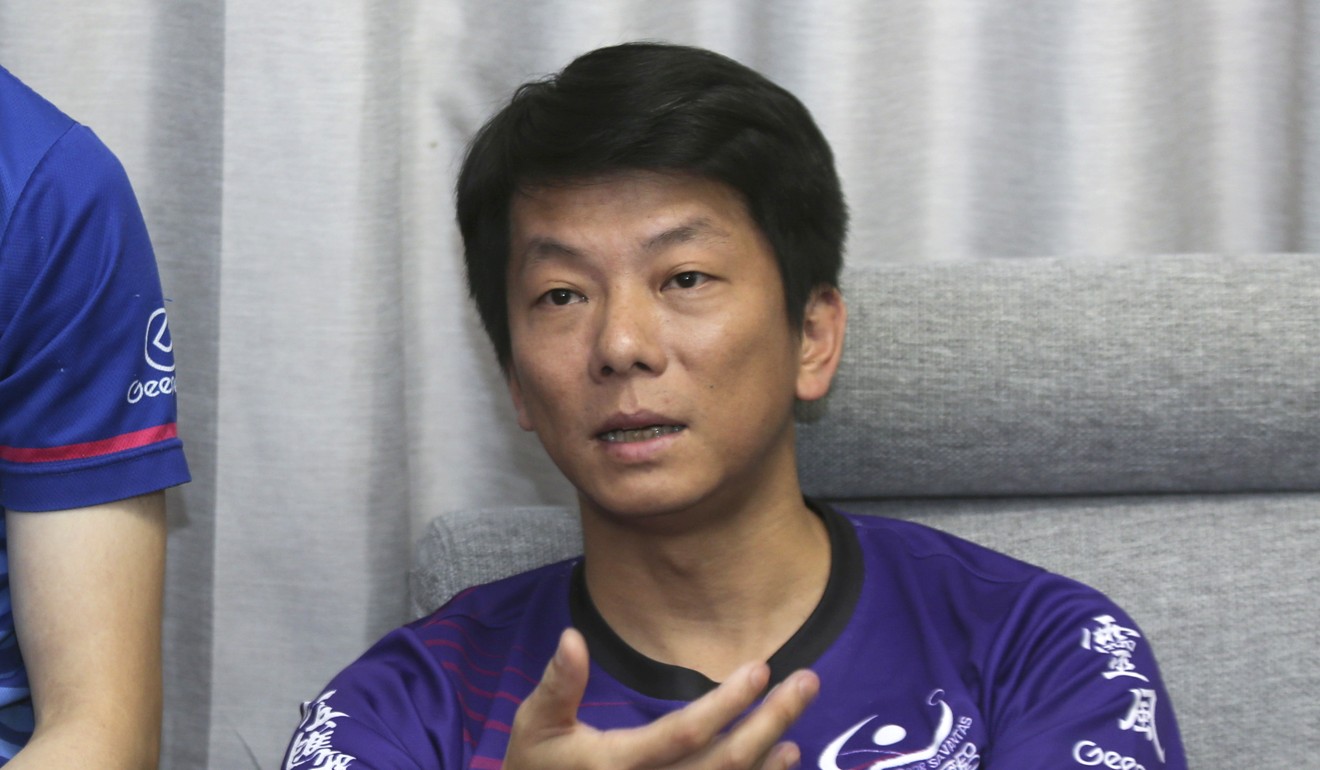
Courting controversy: Hong Kong ping-pong centre ordered to close
Angry ping-pong players say they will be left with nowhere to train, as Lands Department orders closure of facility in industrial building
The imminent closure of a ping-pong training centre in an industrial building in Tai Wai has sparked concerns from players and coaches, who have called on the government to find a proper space to train future athletes.
A total of 200 players, including youngsters and adults, and a dozen coaches, are set to lose their regular training courts in On Ho Industrial Building, as Ping Pong Savantas has been ordered to cease operation before June 19 by the Lands Department.
“We are helping to cultivate athletes for the city and to relieve pressure from public facility shortage,” founder and director of the centre Sammy Tung said.

The reason the facility has been ordered to close is that teaching and playing ping-pong does not comply with the definition of industrial use, specified in land lease conditions.
There is a general shortage of public sports grounds in Hong Kong, and in Sha Tin District there are just 10 ping-pong tables and at most 10 ping pong-rooms provided by the Leisure and Cultural Services Department for some 660,000 residents. Tung’s centre has 11 tables.
Tung said three ping-pong centres located in industrial buildings, including his own, have been training 14 of the 32 members of the city’s youth team, as well as 1,320 students from 33 schools.
“Rents of commercial buildings are three to four times what I am paying,” said Tung, who pays HK$13 per square foot for the Tai Wan venue.
Dickson Wong, a Form Three student living in Sha Tin, said it would be a great pity if Tung’s centre has to close. “I could try to book public tables but it would be difficult to train as regularly and effectively as I do now.”
Cheung Wing-hang, master of Win Fight Boxing Gym, which operates in a San Po Kong industrial building, echoed Tung’s worries. “I wouldn’t even step in the business if there wasn’t low-rent space in industrial buildings,” he said. “If they are to shut us down, the whole Wah Mow building should be evacuated. Here, there are all kinds of recreational services. Should we all leave because of the mini-storage fire?”
A Tai Hang district councillor, Clarisse Yeung, also said a number of cultural and sports groups had shut down quietly in recent months due to the mop-up.
Legislative Councillor Roy Kwong said the government was using “outdated” regulations to punish recreational service providers who contribute to the revitalisation of industrial buildings.
Yeung and Kwong are lobbying the government to relax the regulations and extend grace periods.
But a Development Bureau spokesman said the site would be resumed if the ping-pong centre misses the 14-day rectification period, adding the centre had ignored repeated warnings since last summer.

